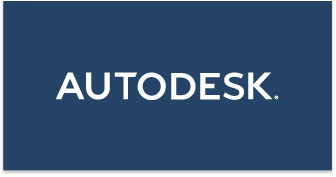Learn how Autodesk identifies its most promising sales leads with quality data.
Result: 50% reduction of incomplete records

See how Appen helped Autodesk in this video.
The Company
Autodesk provides design, engineering and entertainment software to customers in architecture, manufacturing, building, and media and entertainment, including the last 17 Academy Award winners for Best Visual Effects.
Autodesk had traditionally sold through resellers and focused their sales team on individual products. However, their customers were increasingly asking for end-to-end solutions. Autodesk realized the need to understand more about its customers, so that sales could provide solutions rather than pushing products.
Autodesk needed to be able to identify its most promising sales leads and incentivize the sales team to pursue them. To do that, Autodesk needed complete data on every lead, such as company industry, size, and parent company.
The Challenge
Getting Quality Data from Unreliable Sources
Like many large companies, Autodesk’s CRM data comes from multiple sources with variable data quality. Customer- entered data is often inaccurate and hard to normalize. Different sources of data have different levels of completeness, and everything needs to be integrated to produce a single, reliable data store.
Autodesk had a large budget for purchasing company firmographic data from traditional data vendors. However, these vendors could provide data enhancement for only 70% of Autodesk’s database. This made it hard for Autodesk to implement their new sales strategy.
“We started incentivizing sales people based on the industry of the customer. So what that means is, the 70% yield we were getting was not good enough - 30% of sales were not being incentivized, and no one was happy with that,” says Patrick Booher, Director of Enterprise Data Management for Autodesk. “So that’s when we said: 70% is not good enough. “How do we get higher?”
A New Approach
Autodesk started with an in-house team, but knew they needed something more scalable and permanent. Crowdsourcing quickly became the leading candidate. “We saw that with the crowd we could mimic some of our manual processes,” says Booher. Autodesk decided to evaluate vendors based on yield (how provide data for?), quality (how accurate was the data?), scalability (could they handle large datasets quickly?), and cost. “We evaluated other crowdsourcing vendors, and Appen had the best results. Additionally, Appen did a really good job of proving the company and service, not just the product,” says Booher
Vendor reliability was key for Autodesk because the goal was tight integration, pushing quality data to the sales team as quickly as possible. Appen built a solution based on its proprietary business data workflow, which leverages a pool of millions of human contributors to research companies on demand.
The Solution
Autodesk sends data from a variety of sources to its sales team - purchased lists, existing customers, and inbound interest. Autodesk’s Enterprise Data Management team ensures a consistent set of data to allow the sales team to find and pursue its best sales leads.
Any customer records missing key data are automatically sent to Appen via a direct API connection. The crowd first finds the official URL of the target company, and uses that (as well as additional data sources) to identify the company industry, size, and any parent companies. If necessary, additional information like company address, phone number, and description could be added, or company executive information like team names, titles and bios.
Answers from multiple contributors are cross-checked, integrated into a single answer, and sent back to Autodesk. In October 2012 alone, Appen processed 453,403 records for Autodesk.
Unlike Autodesk’s relationship with other legacy data providers, Autodesk is able to purchase and retain data from Appen rather than licensing it. That means Autodesk doesn’t need to re-up every year - they own their own data.
The Results
Appen improved the percentage of customer records with complete information from 70% to 85%. “Appen was part of the overall solution that got us from directional to transactable - you can’t transact on 70%.” This translates into more sales leads with complete data that their sales team is incentivized to pursue.
According to Booher, Appen's advantage comes down to data completeness and accuracy. “The question is, are you getting the yield and accuracy you need from current data providers? Similar to the challenges we faced, my peers at other companies report yields of 65-70% from other data providers. The question is why? The answer is applying innovative methods towards existing problems, and that’s where Appen has an advantage.